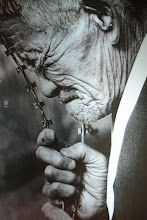Tuesday, 6 May 2008
WikiKnowledge - The Rise of Fundamentalism and Loss of Meaning - Armstrong
Central to her reading of history is the notion that premodern cultures possessed two complementary and indispensable ways of thinking, speaking and knowing: mythos and logos. Mythos was concerned with meaning; it "provided people with a context that made sense of their day-to-day lives; it directed their attention to the eternal and the universal". Logos, on the other hand, dealt with practical matters. It forged ahead, elaborating on old insights, mastering the environment, and creating fresh and new things. Armstrong argues that modern Western society has lost the sense of mythos and enshrined logos as its foundation. Mythical narratives and the rituals and meanings attached to them have ceded authority to that which is rational, pragmatic and scientific - but which does not assuage human pain or sorrow, and cannot answer questions about the ultimate value of human life. However, far from embarking on a wholesale rejection of the modern emphasis in favour of the old balance, the author contends, religious fundamentalists unwittingly turn the mythos of their faith into logos. Fundamentalism is a child of modernity, and fundamentalists are fundamentally modern.
Subscribe to:
Post Comments (Atom)




No comments:
Post a Comment